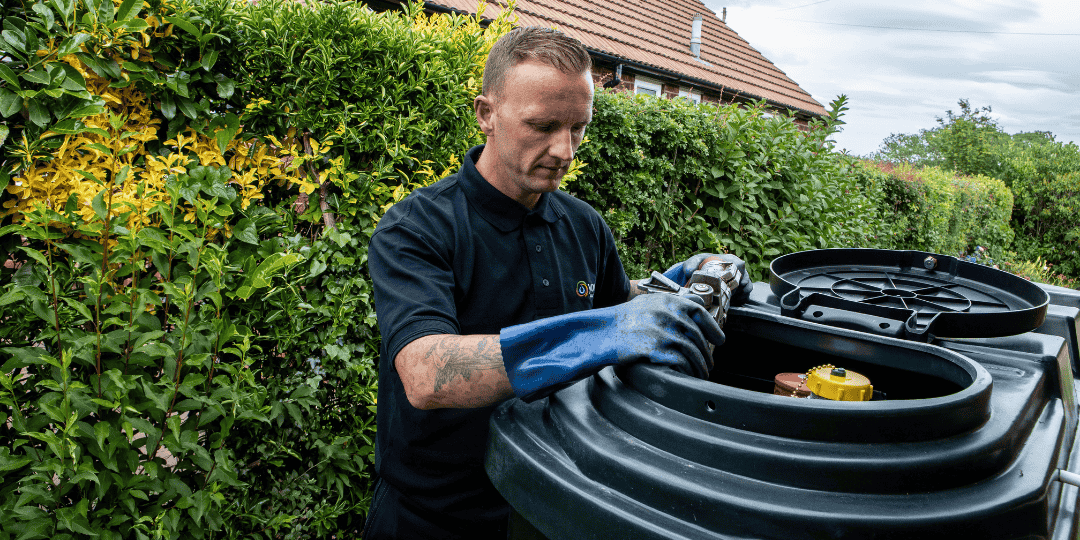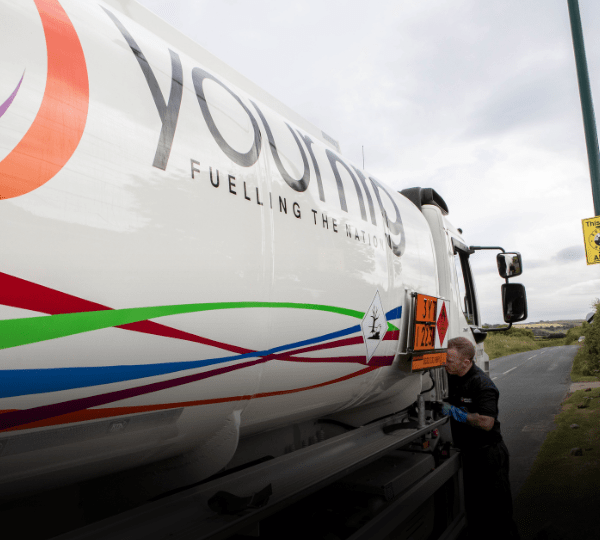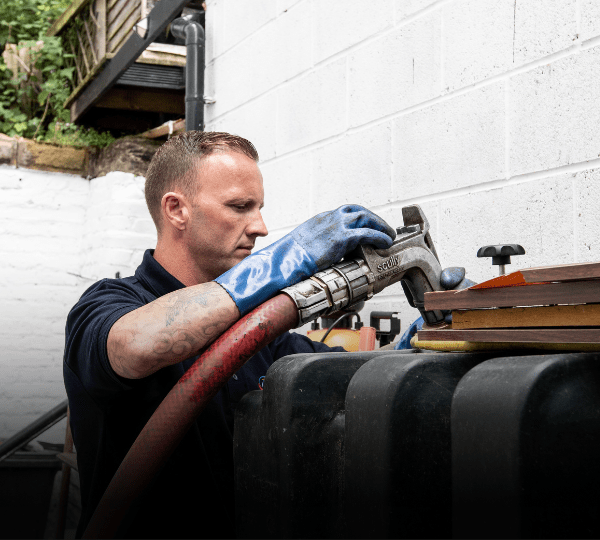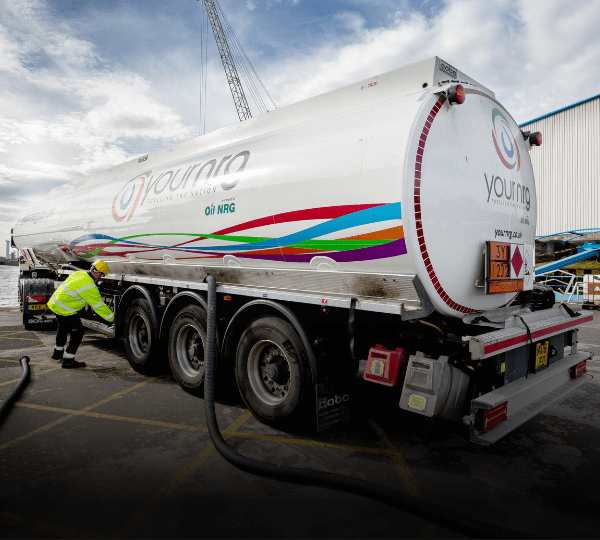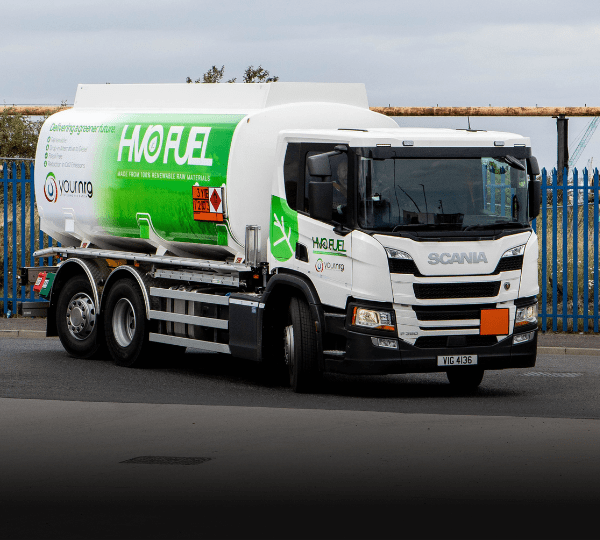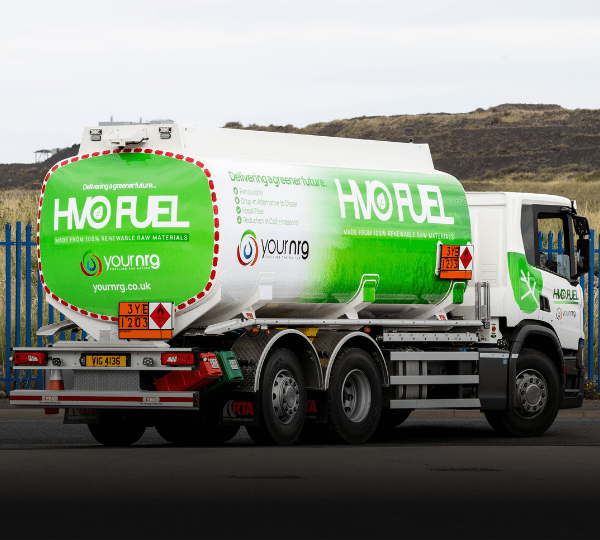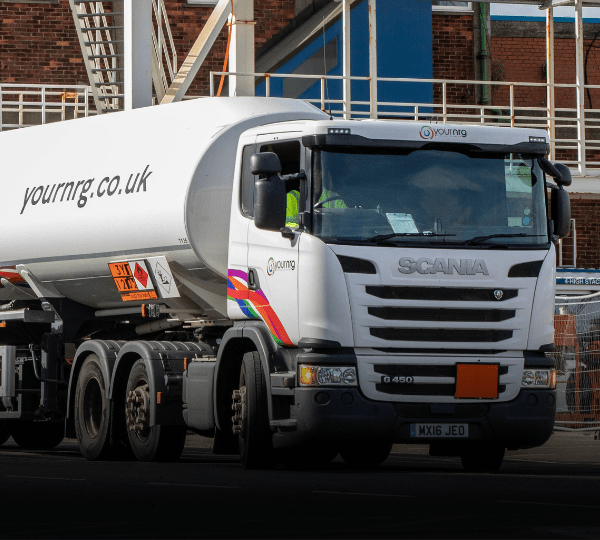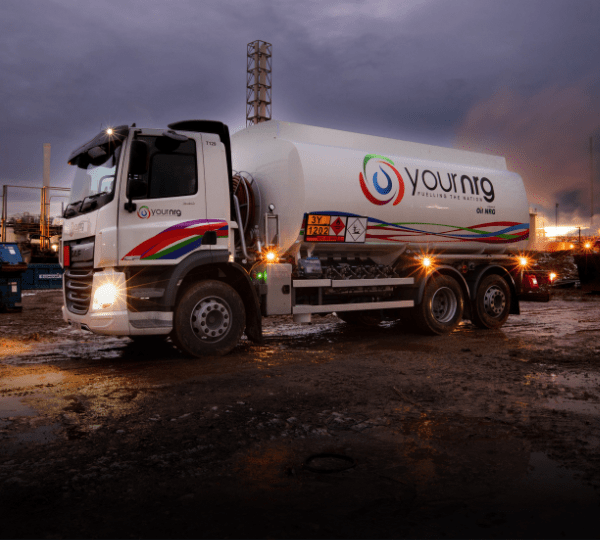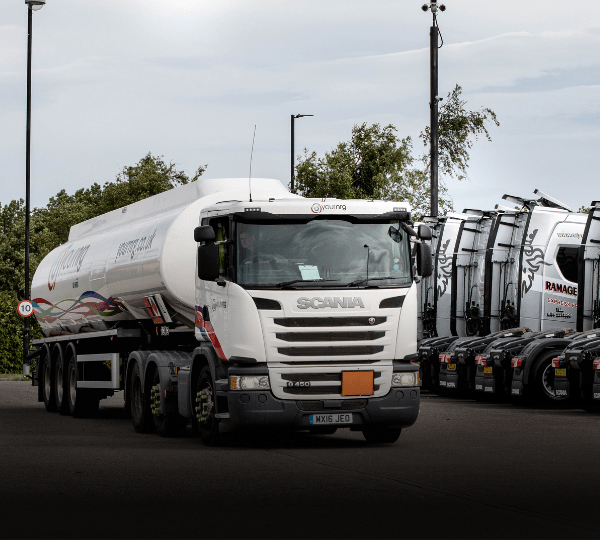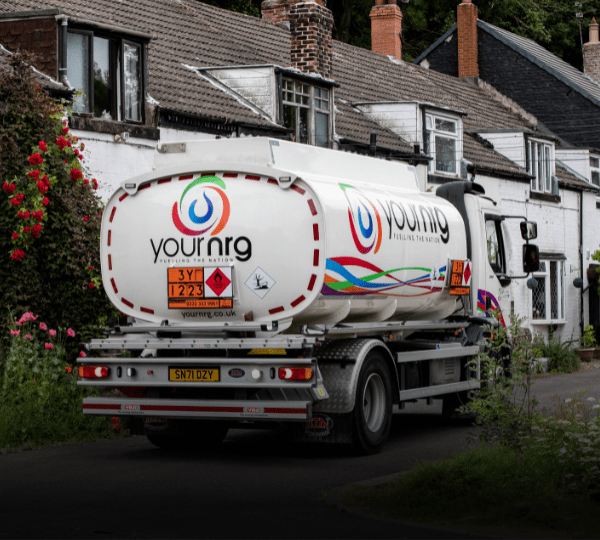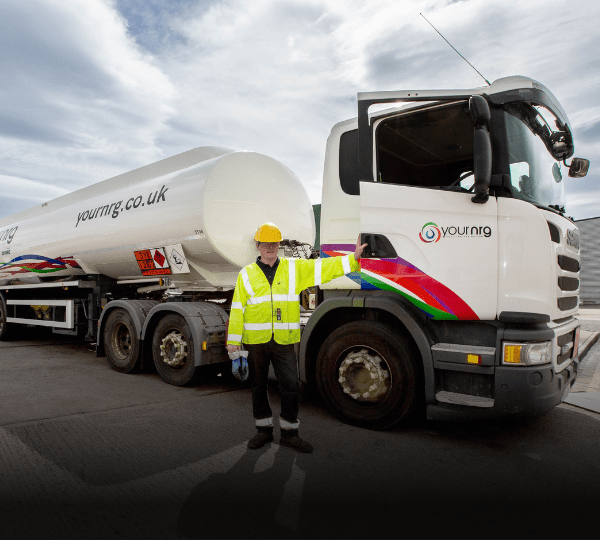For many off-grid homes in the UK, domestic heating oil is a reliable, efficient way to stay warm, especially in the colder winter months. But what exactly is domestic heating oil, and does it have any unique advantages over traditional heating systems? Whether you’re new to heating oil or just looking to understand your options better, this guide will walk you through what domestic heating oil is, how it works, and why it’s a popular choice for keeping homes warm across the country.
Key Takeaways
- What is domestic oil?
- What type of oil is used for home heating?
- What are the different types of heating oil?
- Is heating oil worth it?
What is domestic oil?
Domestic oil is a liquid fuel used to power central heating systems and boilers in homes that aren’t connected to the mains gas grid.
What type of oil is used for home heating?
The most common type of home heating oil is kerosene, which offers quick, efficient warmth. It’s typically stored in a tank on your property and delivered by fuel suppliers.
What are the different types of heating oil?
There are two different types of kerosene heating oil to choose from, based on your preferences:
- Standard kerosene: This is the most common choice for many homes. It’s clean-burning, efficient, and well-suited to most modern oil-fired central heating systems. It offers excellent heat output and is reliable during the harshest cold weather conditions.
- Premium kerosene: A step-up from the standard, premium kerosene is treated with additives that boost efficiency and boiler performance. It helps keep oil boilers running better for longer, reducing the need for maintenance and improving a home’s energy efficiency over time.
For extra protection and performance, ask about our BlueBurn Premium and BlueBurn Cooker additives, designed to keep your boiler or cooker in top shape and running cleaner for longer.
For most, standard kerosene provides the perfect balance between performance and cost, making it the go-to heating fuel for keeping homes comfortable and energy bills under control. But if you want to make sure your home’s central heating system is running as efficiently as possible, premium kerosene is the better option.
Looking to reliably heat your home for less? Get a free quote from Your NRG and see why we’re the go-to choice for domestic heating oil across the UK.
Is heating oil worth it?
For rural homes and farms across the UK, heating oil is absolutely worth it, providing warmth and hot water all year round. Here are some other benefits of domestic heating oil:
It’s economical and budget-friendly
Heating oil is one of the most cost-effective ways to heat larger homes, especially when compared to electric systems or traditional gas boilers. Thanks to its fast-burning properties, it heats rooms quickly and keeps them warm, especially if your home is well-insulated. Because heating oil delivers efficient heat, you don’t need to use large amounts to reach a comfortable temperature. This helps keep your fuel use (and your costs) under control.
Similarly, many homeowners buy domestic heating oil in bulk during the summer months, when demand is lower and prices are typically cheaper. By planning ahead like this, you can lock in better rates and stay warm throughout the cold winter months for less.
Our flexible savings plans let you set a monthly Direct Debit, building up credit over time to reduce or even cover your next refill. It’s free to join, easy to adjust, and helps you spread the cost of heating oil across the year. New customers get £20 credit when signing up with a £50+ monthly Direct Debit. Want to plan ahead without the big bills? Get in touch to start your personal savings plan with Your NRG.
Reliable in cold weather
Kerosene is a reliable choice in cold weather because, unlike diesel, it doesn’t thicken or turn sludgy as temperatures drop. While other fuels can become inefficient or even unusable in freezing conditions, domestic heating oil stays liquid and stable, keeping your system running well all winter.
This stability is also helpful for storage. Heating oil can sit safely in a domestic tank for many months without needing to be replaced or treated. So if it’s peace of mind you need when it comes to your home heating, kerosene heating oil is the one to choose.
Energy independence
Having a domestic oil tank on-site puts you fully in control of your heating supply. Unlike mains-connected systems, heating oil allows you to manage your fuel levels and schedule deliveries when it suits you and your budget best.
This independence from the national gas network is a major advantage for off-grid homes and properties in remote locations, where access to traditional utilities can be limited or unreliable. With your supply of domestic heating oil, you get a layer of security against potential supply disruptions and fluctuating energy prices.
Your NRG: The UK’s leading independent fuel supplier
Thinking about heating oil for your home? Let’s keep things simple – we deliver competitively priced domestic oil straight from our depots across the UK. With an expert team of reliable delivery drivers, we make sure you get your heating oil on time, every time.


